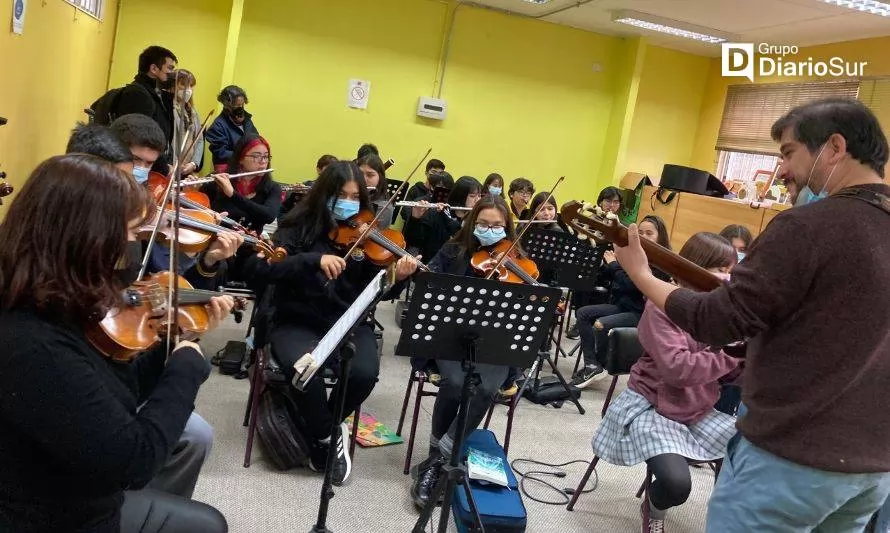As a Sky expert, Dietmar “Didi” Hamann has the Champions League in mind. He also took a look at Austrian football for kicker – and revealed himself as an Austria fan in many aspects. Only when it comes to Ralf Rangnick does the 2005 Champions League winner remain skeptical.
Mr. Hamann, if Bayern also sign Konrad Laimer, they have four Salzburg-trained players in their ranks: Upamecano, Sabitzer and Mané. Does Salzburg do a better job than Bayern?
Salzburg has been doing an excellent job for years. Mané, Haaland, Keita and whatever their names are, occupy top positions in European football. You received very good training in Salzburg. I think a lot of value is placed on discipline, there are very good coaches and FC Liefering is an ideal model, where the young players are introduced to the first team. It’s harder in Munich than in Salzburg. The amateurs have to get promoted back to the 3rd league, that’s a big problem. The team doesn’t help you in the regional league, only in the 3rd league do you get better players again. What is true is that the campus costs a lot of money and the success is currently manageable. I think the U19s were eighth recently and the U17s weren’t much better either.
Salzburg earned 75 million euros from the sale of three players they had developed, while Bayern had to buy ready-made players for an initial price of 120 million euros. Isn’t there an error?
Salzburg does not have the right to play for the Champions League title. The ex-Salzburg players mentioned would never have developed in Munich like they did in Salzburg. Therefore the question is hypothetical. Mané wasn’t the player in Salzburg that he is now after six years at Liverpool. It is the first time in ten years that an absolute world star has come to the Bundesliga. And that’s Mané as Africa Cup of Nations winner and former Africa Player of the Year. We also had world-class players, but they only became it in the Bundesliga. For the league, I think it’s important that Mané came, especially after the departures of Haaland and Lewandowski.
You say that the ex-Salzburgers didn’t develop that way in Munich. Because there is no permeability?
The system is not permeable enough. I recently criticized the fact that Bayern bought Marcel Sabitzer for 17 million euros, who is then the third, fourth or fifth choice in his position. At the same time, however, they handed Angelo Stiller over to Hoffenheim. Of course you can’t know beforehand how he’ll develop, but you can at least try it and give the boy a chance. With me, six or seven players were brought up from the A youth team, who didn’t all make it to Bayern, but then played in the Bundesliga or the 2nd division. I can’t judge how good the current vintages are, but the permeability used to be higher. But we also had Hermann Gerland, who did a good job and whose word carried weight.
A few years ago, Gerland also spoke an important word (“Remember this name!”) about Thorben Rein. Now he’s playing in Lustenau.
The players need trust from the coach. A step backwards is often not a bad thing. But it’s not always the fault of the coaches or the club. It’s also the responsibility of the players. They have to have the right head on their shoulders, otherwise all that talent won’t help them. How many players have I seen who were among the best in youth and then disappeared into the district leagues? It’s no different today than it was 20 or 30 years ago.
Does that mean that the Fritz Walter Medal is not a license for a professional career? Rapid also has an ex-Bayern player who has been awarded with Nicolas Kühn.
At 17, 18 it really starts. What was before is preliminary skirmishes. Then comes the first beer, the first girlfriend. One has to come to terms with that first. Steffen Hofmann, who is currently being honored with a special exhibition at Rapid, has seen that the road to Austria is not bad. The boys have to play – before they do that in the third or fourth league in Germany, they should try it in the first league in Austria!
We still have an ex-Bayer: your former teammate Miroslav Klose as a coach in Altach. Did he surprise you too?
It is strange. Everyone I thought would definitely become a coach didn’t become one. The ones I wouldn’t have thought of went into coaching. Miro Klose also belongs to the latter. I’ve met him a couple of times over the last few months, he lives coaching day and night. Magnin has already done a sensationally good job in Altach, but I also believe Miro is capable of that. It’s brave, but it’s good that he’s doing it. Because there is no shortcut to becoming a Bundesliga coach in Germany. You have to start somewhere. And I like that he doesn’t say, like other coaches, they need two or three transfer windows to get their team together. Miro says he wants to make the players he has there better. Of course it won’t work for him without one or the other newcomer. But Miro was always a team player, no matter how many goals he scored. I saw very different people there. I take my hat off to him.
And do you trust Ralf Rangnick to cause a sensation with Austria at the EURO 2024 in Germany, as he has in mind?
For that he has to qualify first! I think Austria’s national team should have seen more out of these players in recent years. What I didn’t understand about Ralf Rangnick’s commitment is that he was only allowed to be there for the ÖFB seven days a month and to be able to do the part-time job at Manchester United. That is now obsolete, but Austria is making itself too small. Austria is not such a mini-country that it has to rely on a part-time trainer. I don’t understand that and that’s why I’m rather skeptical despite the good start in a difficult group.
If even the youth coach cares more about what the players do off the ball than what they do with the ball, you’re going to lose the kids eventually.
Didi Hamann on the “Red Bull style”
–
Some time ago you also acted as a critic of the “Red Bull style”. What are your criticisms?
I don’t mind if Salzburg and Leipzig play the way they play. What I don’t like is that when signing players, they primarily look at what the players do without the ball. If even the youth coach cares more about what the players do off the ball than what they do with the ball, you’re going to lose the kids eventually. And in the long run, you’ll only succeed if you’re able to control a game with the ball. You saw the problems with Jesse Marsh, Nagelsmann has already changed a bit. You can use this system of chasing the ball with young players, but once players like Forsberg or even Nkunku are 25, you can no longer tell them to chase every ball. That’s why I’m excited to see how Red Bull football will continue.
But are you a fan of the Austrian Bundesliga model with the halving of points?
Yes, because it’s the only model that could make our Bundesliga exciting again. If Bayern win the championship three more times, we’ll have this discussion too. Maybe after their next championship title. The mode doesn’t have to make the sport better, but more exciting. If in the last four or five rounds it’s all about who gets the last place in the European Cup and everything else is decided, that’s not good. The Austrians were visionaries. And I am convinced that some countries will still look to Austria.
An injustice like your “Sky” colleague Andi Herzog suffered from the halving of points when he had to relegate Admira, although he had collected more points than Altach over the course of the season, don’t you fear?
Then Klose wouldn’t be a coach in Altach now. So sorry for Andi, of course, but that’s what the competition lives on. There is no such thing as equal opportunity anyway. I don’t think the mode is unfair. There is a basic round and then it starts all over again. I find it exciting and it has helped Austria immensely.
–
Related posts:


